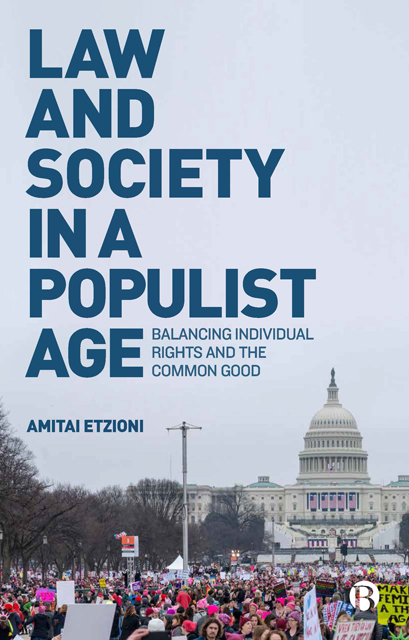twelve - A privacy doctrine for the cyber age
Published online by Cambridge University Press: 21 April 2023
Summary
Many on the right and on the left feel that technological development is eroding privacy. In addition, the main legal concepts that deal with privacy are obsolete. A privacy doctrine suitable for the cyber age must address a radical change in the type and scale of violations that people face, especially that the greatest current threats to privacy come not at the point that personal information is collected but, rather, from the secondary uses of such information. Often-cited court cases, such as Katz, Berger, Smith, Karo, Knotts, Kyllo—and most recently Jones—concern whether or not the initial collection of information was in compliance with the U.S. Constitution. They do not address the fact that personal information that was legally obtained may nevertheless be used later to violate privacy—that the ways such information is stored, collated with other pieces of information, analyzed, and distributed or accessed often entail very significant violations of privacy.Moreover, although a considerable number of laws and court cases cover these secondary usages of information, they do not come together to make a coherent doctrine of privacy—and most assuredly not one that addresses the unique challenges of the cyber age.
True, collected personal information was subject to secondary abuses even when it was largely paper bound (e.g., in police blotters or FBI files). Indeed, when Warren and Brandeis published their groundbreaking 1890 article in the Harvard Law Review,considered to be the “genesis of the right of privacy,”they were not concerned about gossip per se (a first-order privacy violation) but about the wider distribution of intimate details through the media (a secondary violation).However, the digitization of information, the widespread use of the internet and computers, and the introduction of AI systems to analyze vast amounts of data have increased the extent, volume, scope, and kinds of secondary usages by so many orders of magnitude that it is difficult to find a proper expression to capture the import of this transformation.The main point is not that information can now be processed at a tiny fraction of the cost and at incomparably faster speeds than when it was paper bound, which is certainly the case, but that modes of analysis—which divine new personal information out of personal data previously collected—that are common today were simply inconceivable when most personal information was paper bound.
- Type
- Chapter
- Information
- Law and Society in a Populist AgeBalancing Individual Rights and the Common Good, pp. 181 - 206Publisher: Bristol University PressPrint publication year: 2018



